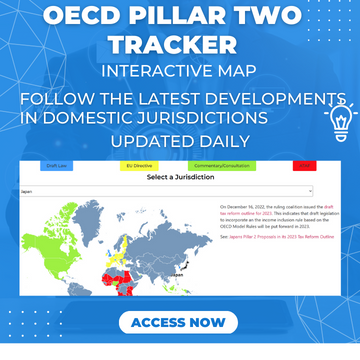The starting point is the deferred tax expense in the financial accounts.
If the rate used for financial accounting purposes is:
- more than 15%, the deferred tax expense is recast to 15% to prevent high taxed income pushing up the total adjusted covered tax figure.
- less than 15% and it relates to a deferred tax asset loss that would be a GloBE loss, the deferred tax loss can be recast to 15%. The amount of the increase is deducted from the Total Deferred Tax Adjustment Amount.
This figure is then subject to a number of adjustments.
1. Any deferred tax that relates to items excluded from the Pillar Two GloBE income or loss is excluded.
This makes sense and mirrors the treatment of current tax relating to these (which is also excluded).
If the underlying income isn’t subject to the GloBE rules, then including the tax would skew the resulting effective tax rate calculation.
2. Deferred tax relating to a valuation adjustment or accounting recognition adjustment for deferred tax assets is excluded.
The requirements under accounting standards vary but generally, in order to reflect a deferred tax asset in the balance sheet, there needs to be some likelihood that the asset will be available for future offset.
If it was not probable that the asset would be utilized then the deferred tax asset would need to be amended to reflect this.
There are broadly two ways of achieving this for financial accounting purposes.
One, the deferred tax asset could be shown in full, but then included an associated credit in the balance sheet to reduce its value to the level that is expected to be offset.
Alternatively, the deferred tax asset could be adjusted to just show the net amount that is expected to be utilised.
These are commonly known as the ‘gross’ or ‘net’ method of reflecting deferred tax.
In both cases, for the purpose of the GloBE rules, they are excluded.
If a loss deferred tax asset wasn’t recognised in the accounts at all due to the financial accounting criteria not being met then there is a deemed deferred tax asset for Pillar Two GloBE purposes.
If in a future year it was recognised in the accounts, this is disregarded for Pillar Two purposes as it has already been reflected.
3. Deferred tax arising from a change in the domestic tax rate is excluded from the Total Deferred Tax Adjustment Amount as it doesn’t relate to GloBE income in the current year.
4. Deferred tax arising from tax credits is excluded. You can see an example of why this is here.
5. Deferred tax relating to an increase in a deferred tax liability that isn’t paid in the next five fiscal years is clawed back at the end of the five-year period to the extent that it is unutilized. This is known as the recapture accrual.
This does not apply to a recapture exception accrual.
If this is subsequently paid this is then added back into Adjusted Covered Taxes.
6. Deferred tax relating to ‘disallowed accruals’ and ‘unclaimed accruals’ is excluded.
A disallowed actual is:
- any movement in the deferred tax expense that relates to an uncertain tax position (where there is doubt over the tax filing position taken, such that the deferred tax amount in the accounts is adjusted to take account of the uncertainty).
- deferred tax that relates to distributions from a constituent entity (eg relating to withholding tax).
An unclaimed accrual is an increase in a deferred tax liability that is not expected to be paid within the next five years and an election is made not to include it.
An MNE may make this election as although if the increase in the deferred tax liability was included, this would be a Dr to the tax expense in the P&L and increase covered taxes, with subsequent credits in future years, unless it was a recapture accrual exception, there would need to be an amendment anyway when it was recaptured in the future. See more here.
If a disallowed or unclaimed accrual was paid in the fiscal year, this is added to the Total Deferred Tax Adjustment Amount.















